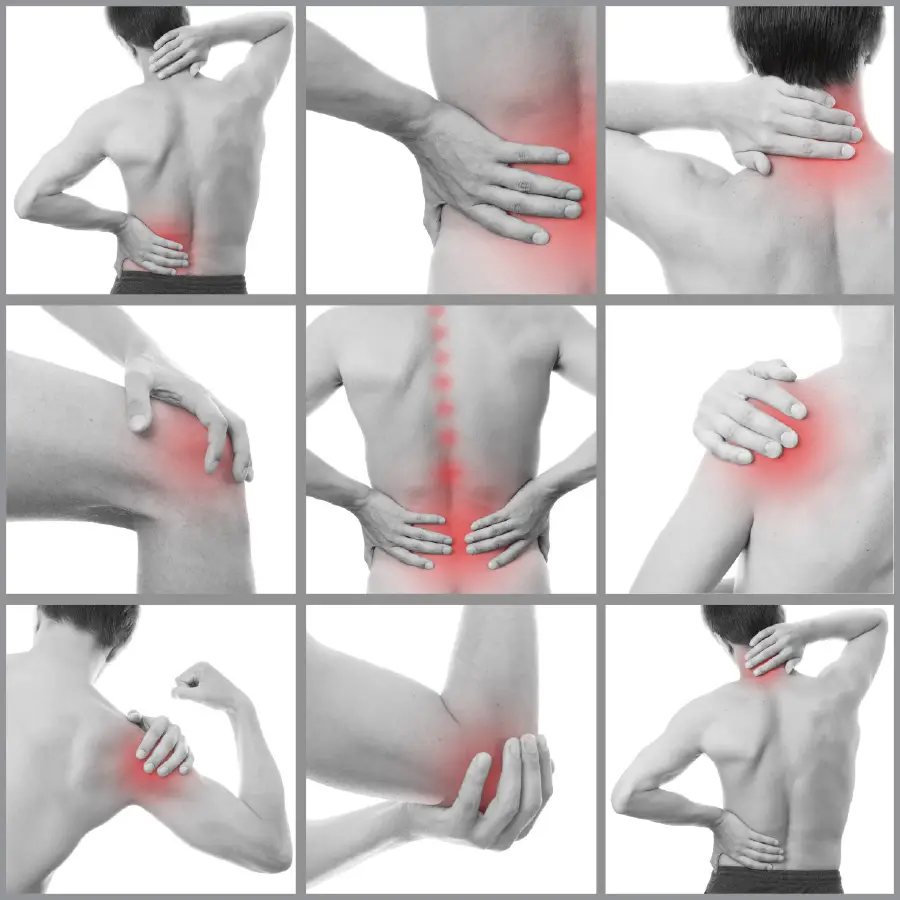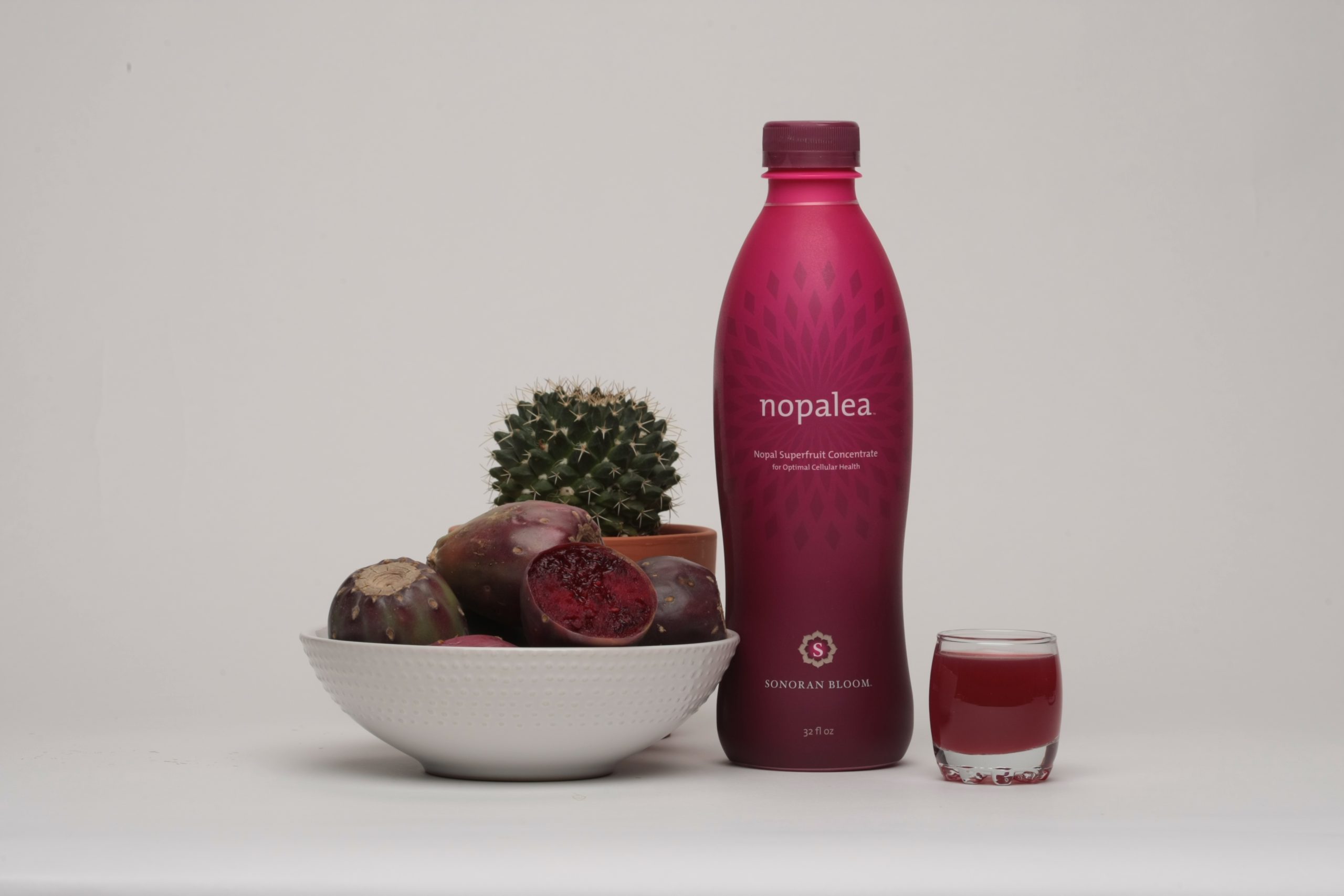Your cart is currently empty!
Category: Health and Wellness
-

Health is Wealth… How Invested Are You in Yours?
Most of our adult lives are focused on working, saving and investing as much money as possible for our family’s future.
But not nearly enough emphasis is placed on creating and maintaining our health. And when you think about – what good is accumulating financial wealth, if we’re not healthy enough to enjoy our lives?
It makes no sense at all, yet this has been the case for millions of people in the Western world for a very long time. Perhaps you can relate?
Today, more than ever before in our history, people are waking up and taking back control of their health and wellbeing.
“If it’s to be, it’s up to me!”
That’s one of my personal sayings, and it applies to my health as well. I prefer to take good care of my body, so my body can take care of me.
As we all know – those of us who have lived long enough – we can mistreat (or neglect) our bodies while we’re young, without paying the piper. But sooner or later, the effects will start to show up, if we don’t do something different.
Little by little, imperceptible at first, we may start to notice how we get a little more agitated than we used to. Or our minds don’t seem as sharp as they once were. And if you have grandkids, I’ll bet your energy levels are not as high as when your children were young, right?

I remember my mother saying, “I’m glad the Good Lord gave me my children when I was young… because I sure don’t have the energy to do it now!” She said that on numerous occasions, as she watched me running around with my two, young sons like the Energizer Bunny.
Now that I have grandchildren of my own, I have a much better appreciation of what she meant. Life is such a great teacher, isn’t it? So we grow, we learn, and then we adapt. And when we know better, we do better.
Because I know that health is wealth, what can I do to take better care of my body? What can I give it, so I can live a long, happy and vibrant life? I put an emphasis on ‘vibrant’ because I don’t want to just live longer… I want to live healthy, while living much longer. I bet you feel the same way too!
We’re fortunate today to have so many amazing advancements in health care. We’ve come a long way and have experienced so many breakthroughs in science and medical technology.
While we’ve made great strides, there are still some very worrisome challenges to overcome. Challenges that often prevent us from living the joyful, healthy lives that we all want and deserve. The kind of health that
I believe is our birthright.As we look at these challenges, there are some very positive things happening that you’ll want to know about. Knowledge is power—but only when we DO something with that knowledge.
I want to share some information about the culprit behind many chronic diseases that continue to plague so many people… chronic inflammation.

Chronic Inflammation and What YOU Can Do About It
First, let’s distinguish between ‘acute’ inflammation and ‘chronic’ inflammation. Acute inflammation is what happens when you cut your finger or get stung by a bee – or when bacteria gets into your system some other way.
What happens? Well, first you feel the pain, swelling, and redness. This is the intelligence of your body, rushing in to attack any foreign invaders. They will be quickly neutralized, and you’ll feel better very soon.
But what about inflammation that your immune system fails to eliminate quickly and, instead, morphs into a condition that can last for many months – or even years?
This is called chronic inflammation. It’s when your white blood cells attack nearby healthy tissues and organs (looking for the bad guys), which sets up a chronic inflammatory process.
Left unchecked, this inflammatory process plays a central role in some of the most challenging diseases of our time, according to a Harvard Medical School Guide, Understanding Inflammation:

- Heart disease
- Cancer
- Rheumatoid arthritis
- Asthma
- Diabetes
- Alzheimer’s
What Does Science Say About Chronic Inflammation?
Scientists suggest many factors contribute to chronic inflammation, including genetics, exposure to environmental toxins, and lifestyle factors.
There’s not much you can do about your genes. And it’s an ongoing challenge to avoid toxins, like polluted air, heavy metals, and pesticides… even though we do our best.
We can, however, make some lifestyle changes that are just common sense. We can make sure we eat healthy fats, instead of the unhealthy ones. We can avoid processed foods. We can exercise. And we can (and must) get plenty of sleep, so our body can restore itself.
Our body is an amazing vehicle, but it does require some TLC to run efficiently.
You’ve probably heard the old saying, “You are what you eat.” I feel there’s a lot of truth to that — and the British Journal of Nutrition agrees. In their May 2016 edition, they summarized a number of studies, supporting the notion that dietary polyphenols may lower inflammation in the body.
Which foods are high in polyphenols, you may ask? They include:
- Onions
- Red grapes
- Green tea
- Coffee
- Turmeric
- Cherries
- Plums
- Dark, leafy green vegetables (spinach, kale, collard greens)
And the Harvard Medical School Guide, Understanding Inflammation, suggests a few specific foods that provide healthy doses of omega-3 fatty acids, which have LONG been shown to reduce inflammation:
- Olive oil
- Flaxseed oil
- Fatty fish (salmon, sardines, and mackerel)
Now, this is amazing because omega-3s can cross the blood-brain barrier, so they may even help lower inflammation associated with Alzheimer’s disease and reduce the risk of stroke.

More Ways to Combat Chronic Inflammation
In addition to eating all the healthy foods we can, we can help our body by avoiding the bad stuff. Leave off the sodas, refined carbs, and processed foods as much as possible. Exercise regularly, manage your body weight (obesity is a risk factor for inflammation). Also, don’t smoke. And by all means… get enough sleep! You’ll also want to see your doctor and dentist for regular check-ups. Good oral health is mandatory to prevent inflammation. (See page 13 in the Harvard guide on inflammation.) If you don’t have one, just call us, and ask how to get yours. There’s a test you need to ask your doctor to run for you. Chances are s/he won’t offer it, but you can be assertive and ask for it. It’s very inexpensive and may reflect the level of inflammation in your body. What test, you ask?

CRP Blood Test for Heart Disease
C-reactive protein (CRP) test has been recognized in recent decades, as a potential measure of risk for heart disease. Scientists believe that atherosclerosis is the result of the process of damage, repair, and inflammation in the linings of the arteries.
Early detection is key to knowing what’s going on inside our bodies.
Even though tests for cholesterol provide a lot of useful information – about HALF of heart attacks occur in people with normal cholesterol numbers!
Several studies have shown that, among people with normal cholesterol numbers, those with increased CRP levels have a “several-fold” higher risk for heart problems.
Additional research has shown CRP to be a BETTER predictor of cardiovascular events than other inflammatory markers. These cardiac events include heart attacks, strokes, bypass surgery, and angioplasty. (See the Harvard guide for more details.)
Inflammation is no joke. The World Health Organization (WHO) ranks chronic diseases as the greatest threat to human health. And the prevalence of diseases associated with chronic inflammation is anticipated to increase persistently for the next 30 years in the United States.
125 million Americans were living with chronic conditions in 2012. And 61 million (21%) had more than one.
Nearly 60% of Americans had at least one chronic condition in 2014.
42% of Americans had more than one condition in 2014.
12% of adults had 5 or more chronic conditions in 2014.
Worldwide, 3 of 5 people die due to chronic inflammatory diseases like stroke, chronic respiratory diseases, heart disorders, cancer, obesity, and diabetes.

Time to Reclaim Responsibility for Your Health
Our natural state is health. It is our birthright. But our lifestyle choices, environmental toxins, and stresses of modern life ALL conspire to rob us of a vibrant, healthy and joyful life.
It’s time to reclaim yours. Time to put more emphasis on creating health than creating financial wealth… because health is wealth!
At TriVita, our commitment is to help you enjoy a healthy physical, emotional and spiritual life.
- We want to help you take care of your body because you only get one.
- We want to inspire you toward positive emotions that play a huge part in your health.
- We want to encourage you to live a life with meaning and purpose, as you attune to your Spiritual nature.
We’ve created a product that many people are finding helpful to combat the effects of chronic inflammation – Nopalea. Check it out, and see what you think. We’re just a phone call away, if you have any questions.
It’s our honor to serve you.
-

Sleep Peacefully
Trivita Clinic offers many safe and natural options to help cope with stress and improve sleep
There is a lot of uncertainty in the World which can lead to stress. Excessive stress can lead to higher levels of anxiety, depression, insulin sensitivity, high cortisol, increased heart rate, and insomnia. Long term effects of stress compromise our immune systems, cause high blood pressure, and lead to serious chronic illnesses including heart attack, stroke, and cancer. While stress is inevitable, the question we must all ask is if the amount of stress we accept is worth the potential side effects.
Sleep is an important aspect of our lives, as it gives us the opportunity to recover and re-energize. If we are getting adequate sleep we will spend 1/3 of our lives sleeping. Yet many people do not get the sleep they need, and the long-term effects can lead to serious medical conditions. Being aware of sleep patterns and understanding what can disrupt this vital activity will preserve wholeness and vitality physically, emotionally, and spiritually.
Inadequate sleep generally considered anything less than 7.5 hours per night can have a profound effect on your metabolism and hormonal balance. Our hormones are chiefly secreted during REM sleep also known as the dream phase. Sleep loss has also been associated with decreased thyroid function resulting in lowered metabolic rate, increased evening cortisol associated with insulin resistance, and aberrations in the release of human growth hormone (HGH). HGH, often alluded to as “the fountain of youth” by layman, and termed the “healing hormone” in medical circles, is responsible for all cellular regeneration. This is why we refer to restful sleep as “restorative sleep.”
Restorative Sleep – the completion of all five stages of sleep, and the chemical changes that occur that allow the brain and body systems to be repaired, heal, and grow.
During restorative sleep, critical functions occur. Our livers activate to do the important work of assimilation and detoxification, our immune system generates antibodies, our skin produces collagen and our minds stop racing, shutting off the cares of the day and integrating our experiences in a way that promotes optimism and hope for the future. As such, a good night’s sleep is one of the most powerful tools to reduce stress and anxiety. On the other hand, insomnia a sleep disorder that can be short-term or chronic, impedes these important processes, thereby hindering the activities of daily life.
The autonomic system manages our body’s ability to respond and relax through two branches known as the sympathetic (Fight/Flight) and parasympathetic (Rest/Digest). It’s important to recognize that our ability to sleep, digest, keep a balanced heart rate, normal blood pressure and so much more relies on a balance of the two. Too much sympathetic activity such as stress, helplessness, worry, fear, and doubt limits self-actualization and purpose and impairs our ability to rest and recover.

Stress is always present. How we handle it is the real issue. Often we’re “justified” in feeling stress, but justification doesn’t regulate health and wellness. How we feel about the stress does. The accumulation of the effects of stress will eventually cause excessive sympathetic activity, preventing sleep, normal heart rate, normal breathing, and optimal digestion. Our ability to sleep acts as a gauge to monitor the effects of stress and adjust accordingly.
Exercise and deep breathing can help reduce or eliminate stress, irritability, and muscle tension, allowing your body to reach the deep state of relaxation needed to fall and stay asleep. Some natural ways to induce relaxation and restorative sleep include
the following:- Enjoy cardio and resistance exercise daily (20-30 minutes per day)
- Optimize transit (food to poo) time to 24 hours
- When feeling overwhelmed, stop what you’re doing, take 3-5 deep breaths, and focus on something for which you’re grateful.
- Eat a small handful of walnuts an hour before bed. They contain melatonin, an antioxidant that will help make you drowsy.
- Incorporate 10-20 minutes of meditation daily.
- Develop a consistent sleep schedule
- Reduce alcohol and caffeine consumption
- Avoid spicy foods before bed to prevent heartburn and acid reflux
- Don’t eat or drink an hour before bedtime and empty your bladder before going
to sleep - Keep a sleeping area that is quiet, comfortable, cool and dark
- Don’t watch TV or use electronic devices in bed
- Turn off the news and other sources of stress!
Let us help you take your next steps towards optimal health and wellness.
If you’re having difficulty sleeping or experiencing any of the symptoms associated with a lack of sleep, call 480-337-4148 or visit TriVita Clinic of Integrative Medicine to book an appointment.

Paul Bernitt
Board Certified Doctor of Holistic Health
Director of TriVita Clinic of Integrative MedicinePaul is a passionate advocate for early detection, prevention, and wellness and brings extensive healthcare education, experience, and leadership to his role as the Administrator of TriVita Clinic.
-

Living For What Matters Most in Life!
Never in modern-day history have we had the opportunity to evaluate our way of life as we have in the past few weeks with the impact and mandatory directives coming with the world pandemic!
And the question we have all had to seriously grapple with is; “What matters most in life?”
It is so insightful as the question truly reveals how we identify with our values, behaviors, habits and even addictions we may not have even realized. I have many friends who love sports. Some have come to find out it’s more than loving sports, they are addicted to sports! The loss of current sporting events has rocked their world!
Just sixty days ago our political views divided and separated us from the very essence of what matters most. We divided, argued, debated, resented and yes some angrily caused physical and emotional damage to one another because of different views!
But something is beginning to happen in this shocking and most challenging time. Our difference of opinions, beliefs, and positions is becoming secondary to a cause of something bigger than ourselves and is actually allowing us to reconsider living for what matters most!

We hear it repeatedly; what matters most is our health, safety and the care for all, especially for those most vulnerable. We have even put our economy second to this priority. Prior to the Coronavirus, I repeatedly have seen those aged and vulnerable disregarded and disrespected. Only, the answer to the question of; “Are you living for what matters most?” could lead us to these extreme measures we are seeing today. Our governments in both the USA and Canada are shutting down what most everyone considered to be what mattered most in their lives; their jobs, sports, dining, drinking, events, travel and many other aspects of our way of life.
My point here is not to determine, debate or question the why, what or how of these mandates, but to raise the question to each of us; can we learn and better identify living for what matters most? This could potentially be the greatest pivot point in modern-day history for; “living for what matters most!”

Prior to “stay at home” government mandates, we were too busy for family time. Not enough time to bring the family together for family meals. Too tired to spend quality time with family members from the hectic lifestyle we have chosen! No time to pray together, to play together and just be together!
If there was ever a time to evaluate what matters most in our lives, it is today. And it’s not a debate of right or wrong, it is the reconsideration of priorities to what matters most in life.
In the scriptures of 1 Corinthians 13 it says; “Though I have faith so I could remove mountains, though I bestow all my goods to feed the poor, and understand all mysteries and all knowledge, but have not love, it profits me nothing. And now abide, faith, hope and love and the greatest of these is love.”
It is my prayer and hope that during this time of isolation, stay at home, and social distancing, it is spent in a time of reflection and decision making of living for what matters most. We have three pathways of choice; to be indifferent, to restore indulgence, or to seek the influence of living for what matters most in life!
-

What’s the story behind B12 and Alfred Libby?
By Scott Conard, M.D.
Alfred Libby, a pioneer in nutrients and health, patented the technology that still powers TriVita’s Slow Dissolve B-12 supplements. His original formula lets the dissolving action of B12 get into the bloodstream without an injection, or swallowing a pill.
Alfred Libby was an associate of Linus Pauling, Ph.D., the 2-time Nobel Laureate and “Father of Vitamin C.” Early in his career, Libby discovered the dramatic health changes that B12 could make, and worked for decades to raise awareness.

“We’ve given people back their lives”
Along with B12, Libby was the “star” of TV infomercials beginning in 2000. Here, I’ve selected some of his memorable thoughts: “We’ve given people back their lives,” Libby said. At the time, painful and expensive injections were the only way to supplement effectively with B12. And, undiagnosed B12 deficiency caused untold damage.
“B12 deficiency, undiagnosed and untreated, wreaks havoc,” he declared. This “havoc” took many forms:
- Moodiness
- Low energy
- Lack of focus
He would talk about patients who, with Slow Dissolve B-12, went from moodiness and lethargy to enthusiasm and energy… older people, sent to nursing homes because they were disruptive and difficult, becoming “functional human beings again.”
A key element in Alfred Libby’s Slow Dissolve B-12 Alfred Libby’s Slow Dissolve B-12[/MWSBLOGCOPY] is its unique delivery system: where the tablets dissolve and get quickly absorbed into the bloodstream.
Dramatic effects, and a change of career
In my own medical practice, I found the same kinds of patient results that Libby witnessed years before. For years, my medical practice specialized in treating the elderly. Patients would come into my office complaining that they had no energy and felt “low” and they would beg for B12 “shots.” After their shots they became so much more alive, so much more well, that I changed course in my career.
I switched my focus to preventive medicine, convinced that the way to make a difference in people’s lives was to help them get the vitamins and nutrients they need before health issues arise.
My own experience has shown me the truth of Libby’s statement: “It’s so fulfilling, so gratifying to be involved with this (Alfred Libby’s Slow Dissolve B-12)… and with the right company, TriVita.”
In his original infomercial, Alfred Libby would gesture toward the phone banks and say, “When I see the phones light up it reminds me of the song ‘You Light Up My Life.’ That’s how I feel when I see those lights; people’s lives are lighting up.”
-

I am so passionate about wellness because…
I am so passionate about wellness because there was a time I lived my life without it!
The misery index rises fast without wellness. There is nothing like living life with the joy of wellness. That is why I started Trivita and the Trivita Clinic of Integrative Medicine. I want people to experience the joy of greater wellness.
The joy of living with wellness is also a much better motivator than the fear of dying!!
In his book The Spectrum by Dean Ornish, M.D., he writes, “When you eat a healthier diet, quit smoking, exercise, meditate, and have love in your life, your brain receives more blood and oxygen, so you think more clearly, have more energy, and need less sleep. Your face gets more blood flow, so your skin glows more and wrinkles less. Your heart gets more blood flow, so you have more stamina and can even begin to reverse heart disease. Your sexual organs will receive more blood flow so you will feel more potent.”
If you want those benefits in your life, I have good news…you can have them! You won’t hear this from your average primary care doctor or your physician specialist. They are trained and reimbursed (paid) to treat disease through prescriptions, procedures, and surgeries. I am not anti-medical or pharmacy, nor do I not credit any of the amazing medical advances. However, SELFCARE yields the greatest benefits of living with the joy of wellness.
Significant research conducted by major institutions are now validating, you can live with greater wellness from making better lifestyle choices. You can reverse chronic inflammatory-related diseases and conditions. You are not a victim of your genes! But you are the exclusive recipient of your lifestyle choices, whether promoting the joy of wellness or the misery of disease!
Chronic inflammatory conditions can be reversed with simple consistent lifestyle choices and awareness is your first step to healing.
You are God wired for wellness!
God created us with the systems and organs to optimize the joy of living with wellness. We are fearfully and wonderfully created! Ps. 139:14. And science is now validating you can live with greater wellness by making better lifestyle choices. Poor lifestyle choices can literally turn on genes that promote illness! And of the opposite, good lifestyle choices can turn on your genes to promote wellness! It is all in the choices we choose to make.
I like to find simple but profound principles. If it is simple, I can do it consistently. If it is difficult, then it is likely that there are already too many daily distractions to add complex activities into the day. Think of just two ways that your lifestyle choices will give you the greater joy of living with wellness. Nutrients and nurturing YOU! Just two!
Nutrients are the chemical compounds found in food that are used by the body to function properly. Protein, fats, carbohydrates, vitamins, and minerals. Understanding these nutrients will help optimize how your body functions. Knowing the difference between good fats and bad fats, complex carbs or refined carbs makes a huge difference in your dietary choices. The more you move towards whole foods, pasture-raised meats, and wild-caught fish the healthier the nutrients. Eat nutrient-dense, not calorie-dense foods.
Other aspects of caring for the body fall into nurturing behavior such as sleep, water, breathing, exercise, gratitude, forgiveness, love, meditation, and prayer, all promote nurturing of whole-person wellness!

The awesome you…designed by God to live well and with purpose! Once you begin to embrace these two simple filters in your choices of the day, you will find you are moving towards greater wellness. It is not about deprivation or misery of doing things you don’t like to do. It is a mindset of what nourishes and nurtures your whole-person wellness.
This is not a cure mindset…thank God for every cure that comes from science, but with a world inflamed with chronic inflammatory conditions, the World Health Organization says; chronic inflammatory disease is the now the greatest health risk to all of humanity!
Heart disease is the number one killer and yet it is preventable and reversible for 90% of all people with just using the filter of nutrient and nurturing activities that support the heart. Dr. Ornish validated in a clinical study that patients waiting for a heart transplant who made certain diet and lifestyle modifications, within just a year, no longer needed the transplant! And on the financial aspect were able to avoid an unnecessary expenditure of 250-500,000 dollars per patient!
Just a little bit of daily exercise will help lower cholesterol, improve blood pressure and heart function. With more blood flow, you can reduce the risk of heart attack and stroke, increase bone density and improve your balance reducing the risk of falls and fractures in older adults. With just a little bit of effort, you can improve energy levels, sleep, mood and the list goes on and on! It’s simply lifestyle choices promoting the joy of living with wellness!
Harvard Medical School experts proclaim, you can conqueror and control chronic inflammation!(1)
World-renowned Dean Ornish M.D. proclaims in his book The Spectrum that heart disease is preventable and reversible. Dr. Dale Bredesen, author of The End of Alzheimer’s, created the first program to prevent and reverse cognitive decline through nutrients and nurturing.
Don’t believe the lie that if pharmacy has not come up with a drug, the condition or disease is not treatable or reversible. Scientific research is now proving lifestyle choices can create greater wellness.
There are two other choices that make a huge difference in the joy of living with wellness. The choice of theism or atheism. If you choose theism that there is a God, then you are loved, you have a purpose, you were created to be His Temple here on earth, to do good deeds so others may glorify your God in heaven.
Wellness is the foundation for your good works and for the joy of living!
In the past I would say; pursue wellness with passion, but today, may you pursue it joyfully!
If you are interested in reading more on the power of lifestyle choices, I recommend; The Spectrum by Dean Ornish, M.D.
Referrence:
Understanding Inflammation, Harvard Health Publishing 978-61401-234-4
-

What Your Doctor May Not Have Told You About B Vitamins
And what you really need to know!
B Vitamins are essential for healthy aging, and they support many key areas of your health, such as brain, heart, cardiovascular, nerves, bones, emotional, cellular and sleep.
So let’s talk about Vitamin B12. It’s well known that B12 deficiencies can lead to cognitive (mental) decline. But more recent research out of Tufts University, and other well-recognized studies, reveal that even mildly-deficient B12 can speed mental decline.
That’s pretty alarming, especially if your doctor is not telling you about the necessity of B12. And, since it is not stored in the body, you need a daily intake of this crucial vitamin – with diet or supplements.
There’s so much information you need to know inside this special report. Just click the link below and get informed!Alfred Libby’s Slow Dissolve B-12
Libby’s original, patented formula, available ONLY from TriVita!
-

❤ Smart Recipes

Oven Roasted Kale Chips
Prep and cook time: 30 minutes
Serves 4- 1 bunch kale (the curly-leaf variety works best for this recipe)
- 1/8 cup avocado oil or coconut oil
- 1/2 teaspoon good quality salt
- 1/2 teaspoon of 1-2 seasonings of your choice:
- Ground black pepper to taste
- Nutritional yeast flakes
- Garlic powder
- Red chili flakes
- Curry powder
- Italian herbs
Place a large, shallow roasting pan or sheet pan in the oven and preheat to 375 degrees.
Rinse kale, and dry completely. Remove stems, and cut into pieces approximately 3 inches wide. In a large bowl, use your hands to combine
the kale with the next 3 ingredients, plus seasonings. Season to taste, coating kale evenly.When the oven is up to temperature, carefully put the kale into the hot pan, spreading it out into one layer. It will sizzle. Roast in the oven for 10 minutes and then gently stir or turn the leaves. Continue roasting another 5-7 minutes until kale is crisp and dry, but not too brown. Some leaves may be chewy instead of crisp. Serve immediately.

Wild Salmon with Rosemary Garlic Paste
Prep and cook time: 20 minutes
Serves 6- 1/4 cup finely chopped fresh rosemary leaves
- 2 garlic cloves, chopped
- 1/2 teaspoon black peppercorns
- 3/4 teaspoon fine sea salt or coarse kosher salt
- 4 teaspoons avocado oil
- 6 wild-caught salmon fillets, 4-6 ounces each
Preheat oven to 400 degrees.
Combine chopped rosemary and the next 4 ingredients in mortar and crush with pestle or blend in mini processor until coarse paste forms. Mix in oil. Rinse the salmon, pat dry with a paper towel, and place on a baking sheet. Rub the mixture over the top of the fish. Position rack in center of oven. Roast the salmon until an instant-read thermometer reaches 130 degrees. Place on a platter and serve.
-

Junk Food. Junk Brain.
Your diet doesn’t just affect your waistline, it is also critical to how you feel and function. Eating the wrong kinds of food, such as processed carbs and meats, fried foods and sweets, may lead to excess body weight, avoidable diseases and poor mental health.
A growing body of research suggests that poor nutrition may contribute to the high prevalence of mental disorders. Nearly one in four Americans
experience a mental illness each year. Furthermore, the CDC estimates 7 million of the nation’s 39 million adults aged 65 years and older are affected by depressionAccording to researchers at the University of Las Palmas de Gran Canaria and the University of Granada, consuming fast food and baked goods are linked to depression. The study tracked the lifestyle and diets of 12,000 volunteers over a six-year period and found that those who regularly consumed fast food, compared to those who eat little or none at all, are 51 percent more likely to develop depression. Furthermore, the more you eat, the experience your risk.
The study also found that participants who ate the most fast food and commercial baked goods were more likely to have overall poor diets. Poor dietary habits include eating less fruit, vegetables, fish, olive oil and nuts. This group was also more likely to smoke and work more than 45 hours per week. These types of lifestyle choices are key contributors to
the development and progression of other chronic diseases such as obesity, type 2 diabetesand cardiovascular disease.How Food Affects the Brain
It’s commonly understood that processed foods are unhealthy. But to break the habit of reaching for these comfort and convenience meals, it’s important to know why they are so bad.
Over the last century, the western diet has changed dramatically. Intake of omega-3 fatty acid has decreased whereas consumption of trans fatty acids, linoleic acid and saturated fat has increased. Eating large amounts of trans fats can damage neurons and interfere with neuronal firing which can have a damaging effect on brain health.
This unhealthy diet also disrupts the neurotransmitters which are responsible for feelings of well-being and happiness. When you eat, the reward center of your brain activates and releases dopamine, a neurotransmitter, which your brain interprets as pleasure. This system is designed to seek out behaviors that make you feel good. When you eat junk food, your brain releases a tremendous amount of dopamine which can lead to craving (and consuming) excess amounts of sweet and fatty foods.
Your brain requires a constant supply of fuel. This fuel comes from the foods you eat, and your diet makes all the difference in how well your brain performs. What you eat directly affects the overall function and structure of your brain. This is incredibly powerful news! It means that by eating high-quality foods rich in vitamins, minerals and antioxidants, you can protect your brain. Alternatively, if you regularly consume unhealthy fats, processed carbohydrates and meats and foods high in sugar you are depriving your brain of the nutrients it needs and robbing yourself of the vitality you deserve.
Keeping Your Brain Healthy
Occasionally indulging in a sweet dessert or a lunch on-the-go likely won’t damage your brain. However, regularly including them in your diet can pose serious health risks. Instead, fill your plate with fresh fruits, vegetables, healthy fats, like olive oil and omega-3s found in salmon, nuts and seeds. Limit alcohol intake and avoid processed carbohydrates and refined sugars.
If you have been living on a convenience diet, consider having your physician check for possible nutrient deficiencies and supplement where necessary while cleaning up your diet.
References:
1 https://www.cdc.gov/aging/pdf/cib_mental_health.pdf
2 https://www.ncbi.nlm.nih.gov/pubmed/21835082
3 https://www.ncbi.nlm.nih.gov/pmc/articles/PMC2805706/ -

What's the Importance of Omega-3 Fatty Acids for Heart Health?
A growing number of experts agree that omega-3 fatty acids affect almost every body system.
We all know that our heart is a muscle and needs exercise for optimal health. And we know the importance of a healthy diet for heart health. But do you know how essential omega-3 fatty acids are for your heart?
The National Institutes of Health (NIH) says that omega-3 fatty acids affect almost every body system and numerous health conditions. Some of the interest in omega-3s is traced back to observations that Greenland Inuit people (who have a high diet in fish oils) have lower serum cholesterol, triglycerides and low-density lipoprotein (LDL) than might be expected.
How to get your omega-3s
The Harvard Medical School Guide, Understanding Inflammation, suggests a few specific foods that provide healthy doses of omega-3 fatty acids, which have long been shown to reduce inflammation:
- Olive oil
- Flaxseed oil
- Fatty fish (salmon, sardines and mackerel)
NIH reports that evidence has been mounting over recent years for the positive effects of omega-3s for heart health, as well as other disease processes and risk factors. Here are a few of the areas positively affected by omega-3 intake:
- Cardiovascular: Perhaps the most well-known effects of omega-3s are on the cardiovascular system (CS). And dietary fish consumption and fish oil supplementation have been studied on coronary artery disease (CAD), arrhythmias, heart failure, and hypertension.
- Ophthalmological: Dietary intake of omega 3s may benefit age-related macular degeneration (AMD) and dry eye syndrome. In fact, several studies have shown a decreased risk of AMD when people ate fish two or more times per week. And people with dry eye syndrome (DES) are linked to a decreased dietary intake of omega-3s or a high ratio of dietary omega-6.
And people with dry eye syndrome (DES) are linked to a decreased dietary intake of omega-3s or a high ratio of dietary omega-6.
- Other Body Systems: Additionally, there are even more health conditions and body systems affected by dietary intake of omega-3 fatty acids to include neurological and psychological, dermatological (skin conditions), and arthritis and joint health.
Add omega-3s to your diet today!
If you would like to add an extra measure to ensure you get the omega-3 fatty acids your body needs, please consider our [TVBLOGCOPY]Omega3 Prime[/TVBLOGCOPY][MWSBLOGCOPY]Omega3 Prime[/MWSBLOGCOPY] supplement. You can also stack up on VitaPoints!
You can read the full article from the National Institutes of Health by clicking here.
-

What's the Importance of Omega-3 Fatty Acids for Brain Health?
A growing number of experts agree that omega-3 fatty acids affect almost every body system.
Research has documented the connection between omega-3s in several neurological and psychological conditions. A recent study found a correlation between omega-3 fatty acids that are related to an increased risk in Alzheimer’s.
How to get your omega-3s
The Harvard Medical School Guide, Understanding Inflammation, suggests a few specific foods that provide healthy doses of omega-3 fatty acids, which have long been shown to reduce inflammation:
- Olive oil
- Flaxseed oil
- Fatty fish (salmon, sardines and mackerel)
The National Institutes of Health says that omega-3 fatty acids affect almost every body system and numerous health conditions. Some of the interest in omega-3s is traced back to observations that Greenland Inuit people (who have a high diet in fish oils) have lower serum cholesterol, triglycerides and low-density lipoprotein (LDL) than might be expected.
Evidence has been mounting over recent years for the positive effects on various disease processes and risk factors. Let’s look at a few of the areas positively affected by omega-3 intake, including brain health:
- Neurological and psychological conditions: The relationship between omega-3 intake and these conditions is grounded in known aspects of brain and neuron physiology. Adequate omega-3 intake seems to help prevent cognitive decline in people’s middle and later years.
Omega-3 fatty acids have also been studied in the context of attention deficit and hyperactivity disorder (ADHD), autism and depression. They have found that some children respond to omega-3 supplementation.
- Cardiovascular: Perhaps the most well-known effects of omega-3s are on the cardiovascular system (CS). And dietary fish consumption and fish oil supplementation have been studied on coronary artery disease (CAD), arrhythmias, heart failure, and hypertension.
- Ophthalmological: Dietary intake of omega 3s may benefit age-related macular degeneration (AMD) and dry eye syndrome. In fact, several studies have shown a decreased risk of AMD when people ate fish two or more times per week.
And people with dry eye syndrome (DES) are linked to a decreased dietary intake of omega-3s or a high ratio of dietary omega-6.
- Other Body Systems: Additionally, there are even more health conditions and body systems affected by dietary intake of omega-3 fatty acids to include dermatological (skin conditions), and arthritis and joint health.
Add omega-3s to your diet today!
If you would like to add an extra measure to ensure you get the omega-3 fatty acids your body needs, please consider our [TVBLOGCOPY]Omega3 Prime[/TVBLOGCOPY][MWSBLOGCOPY]Omega3 Prime[/MWSBLOGCOPY] supplement. You can also stack up on VitaPoints!
Click here to read the full article by the National Institutes of Health.
-

Happy New Year! And welcome to the NEW you in 2020!
The New Year always brings out the desire to change things with new year resolutions. But the facts are that by February, 70% of the resolutions are forgotten.
The most powerful thing you can do to bring change in your life (health, well-being, financial or relationships) is not a new year’s resolution — but to seek out the powerful purpose of your life.
Be the best YOU that you can be, including your desires, gifts, talents and your physical body. Make the plans to live and support your future in being the best original YOU! Think it, see it, feel it, walk it!
One of my favorite scriptures is Proverbs 23:7 NAS “for as he thinks within himself, so is he.” The power of thought is so underestimated by most of us. It is the communication system to every cell, system and organ within you. If you desire to run, first you think, “I am going to run.” Your body does not engage in any physical activity without thought — whether conscious or unconscious.
A typical new year’s resolution is to try and change a result of the past, like losing weight, because of past over-eating and lack of exercise. But it seldom works out because when we focus on a negative (something we don’t want), we get MORE of the thing we don’t want.
To change, you must think ‘NEW’ thoughts.

Think new thoughts, see the new you, feel how it would feel with the new you (emotionally connect). Talk like the new you. Walk like the new you. Then you will BECOME the New You!
Your intelligent cells, systems and organs will begin to align to your NEW thoughts and feelings. As you think, so are you. Where you focus your attention, your energy flows. And your beliefs, your emotions and outcomes will begin to be the new you. The best YOU that you can be… how exciting is that?
I am sure you know this, but the cells of your body respond to the chemicals produced by your emotions. So, negative emotions impact your cells negatively. Positive emotions, quite naturally, have a very positive affect on your cells. Aahh, the intelligence that is your body!
And every thought and memory of your past (if you keep it alive in the present) creates a corresponding emotional and chemical response. That is why most people tend to live their past over and over. What is your chemical dependency? The emotions from the past thoughts and memories of life experiences, or the future you desire so vividly that you can feel it emotionally? Make it vivid and consistently, until it becomes second nature.
I can relate to this truth from my past years when adrenalin was my chemical of choice and dependency. Why? Because I “thought” sleep was a waste of time. I did not understand the restorative and regenerative aspects of sleep, therefore my body required a constant adrenalin rush to keep it going 20 hours a day.
Back then, my thoughts were seldom of peacefulness, gratitude, patience, and acceptance. Rather, they were survival-oriented — pushing myself to the limit. My thoughts produced the chemical my cells depended on for energy. When feeling a lack of energy, I charged even harder. It was a vicious circle. I was anchored in my past, reliving it in my present moment-by-moment.
That life was exciting, as I constantly pushed myself… until I crashed! I’ll never forget the day my doctor told me, “Michael, you must change the way you “think” about health and life, or you will eventually kill yourself.” Yes, they said ‘think.’ So when I went on my wellness journey to find the essentials of wellness, I changed my thoughts dramatically. And, not surprisingly, my life changed.
You Were Not Created for Survival. You Were Created to Thrive!

Consider this powerful scripture in Jeremiah 29:11. “I know the plans I have for you (future). Plans to prosper you and not to harm you. Plans to give you hope and a future!”
The Almighty has plans for your prosperity and joy — not for your mere survival. Surviving is driven by fear, which triggers the stress hormone (fight or flight). But there isn’t a Saber-toothed tiger chasing you, is there? God has plans to prosper you physically, emotionally and spiritually. Plans to help you live your life purpose.
My new thoughts on my wellness journey brought gratitude, joy and love. Consequently, different chemicals began to run through my body. I began to think how it would feel to be grateful, to feel love for God, family and others. It was so life-changing for me that I was compelled to build a company to share the Ten Essentials of Wellness that I discovered. I see them as wellness essentials that will support your life’s journey… with purpose and meaning.
Now, I know we all have some baggage from bad experiences. It’s part of being human. But we have the power to think different thoughts and produce different emotions. And our amazing bodies will respond.
To help release us from our past, we need to change the way we think of the past bad experiences. Forgiveness is one key. Forgive others and definitely forgive yourself, which is even harder. Another powerful release is to learn from the past and then release it. Replace it with the glorious future that God sees for you. And it does not matter what age you are. If you’re still here — you have a purpose to fulfill.
The way to get beyond your current life, and into the life flow of your future, is to get beyond yourself as you are. Think of how life could be flowing in His plan of prospering you. What does that feel like? Emotionally, what does that FEEL like to you? As you focus on these new feelings, you’re sending new messages to every cell in your body. And, in turn, every cell will send back messages to think more thoughts that feel like this. Pretty soon, you’ll be in alignment with God’s plan for you.
As a person thinks in their heart, soul and mind, so are they. There is only one YOU. Find your purpose. Live it. And BE your best self. It’s your birthright.
Wishing you a happy & healthy New Year!
-

The Silent Killer
When asked by your doctor; how are you feeling? Most people respond; I feel fine. But are you really fine? Your actual health may not be as good as you think because what’s really going on inside just might tell another story.
Today, organizations like Harvard Medical School, Cleveland Clinic, National Institutes of Health and the World Health Organization all agree that chronic inflammation breeds a host of diseases and health conditions. National Institutes of Health states; chronic inflammation is not a specific disease but a mechanistic process. It is part of the body’s defense mechanism.
Inflammation represents an essential survival mechanism that helps fight off hostile and harmful microbes and pathogens and repairs damaged tissue. Yet there is another side of inflammation that can be harmful rather than helpful when it lingers and attacks healthy cells and tissue. Chronic inflammation we may not be able to feel or see is a dangerous silent killer.
“Most modern people are boiling pots of inflammation: hot, steaming, churning cauldrons of disordered, chaotic inflammatory responses, much of them due to food choices that perform poorly to human dietary needs.”
— William Davis M.D., Cardiologist and Author
In this special report, you’ll learn why the World Health Organization calls chronic inflammation “the greatest health threat to humanity.” Including information about what causes chronic inflammation and its role in your overall health. Plus, you’ll find the results of an exciting new clinical trial that may change the way you think about managing inflammation, a letter from TriVita’s founder, as well as a very special offer to help get you on the road to wellness. Continue on page 2.
-

12 Simple Ways to Boost Your Mood
Occasionally feeling sad, cranky, upset and distraught is a fact of life. Maybe you’re tired, stressed or just hungry. No matter the reason for your foul mood, here are twelve simple ways to improve your attitude and get you on your way to feeling like yourself again.
1. Make a gratitude list.
There is always something to be grateful for, even when you feel your worst. Focusing on what you’re thankful for —even the smallest things— can turn your mood around and change your perspective.
2. Compliment others.
Giving a genuine compliment can boost positivity and confidence for the recipient and the person who gave it as well. Find something nice to say about the people around you. They’ll appreciate it, and you’ll feel better too.
3. Know your limits.
We live in an age that glorifies multitasking and being endlessly busy. But taking on too many responsibilities at once can leave you feeling defeated, overwhelmed and even self-critical. Instead, try to reduce your stress by taking a step back, taking on fewer tasks and prioritizing your responsibilities.
4. Tackle the little goals.
It’s essential to set both long-term and short-term goals. But when those big goals feel too daunting, step back and check off a smaller goal first. Organizing a junk drawer, folding that laundry still sitting in the dyer or working on a small project can help enhance your mood and sense of accomplishment.
5. Do things you typically enjoy.
When you’re feeling down or a little blue, do what you typically enjoy, even if it doesn’t sound appealing at the moment. Watch your favorite movie or read your favorite book, play board games from your childhood or some other hobby you usually take pleasure in. Participating in activities that you have found enjoyable in the past can take your mind off of what’s bothering you now and lift your spirit.
6. Give a helping hand.
People who volunteer often feel happier and more satisfied with life. In a study led by Case Western University, researchers found that older adults benefited greatly from volunteering and helping others. Volunteering at an animal shelter, a food bank, hospitals or donating to charity are all excellent ways to get out of a funk and improve the quality of someone else’s life.
7. Keep judgments in check.
Comparing yourself to others is a waste of time and energy. Everyone has different mental, emotional and physical limits, and judging yourself and others won’t do anyone any good. Release judgments, focus on forgiveness and put an end to the “compare and despair” cycle.
8. Avoid negative people.
Distancing yourself from negative or toxic people isn’t always easy, especially if they are family or close friends. But negativity is contagious and may be contributing to your sour moods and pessimistic outlook.

9. Move your body.
Exercise has numerous health benefits, but it can also improve your mental and emotional well-being. A study performed by researchers at Harvard T.H. Chan School of Public Health found that physical activity can help reduce your chances of being depressed by as much as 26 percent. Already feeling down? Exercise boosts production of endorphin and serotonin, also known as “feel good” neurotransmitters.
10. Get out of the house.
This might seem obvious, but consider the last time you didn’t feel well. Chances are you stayed curled up in bed or firmly planted on the couch for days. While rest and relaxation are important, getting out the house, even just to run to the store or go for a short walk, can work wonders for shaking a lousy mood.
11. Make sleep a priority.
Sleep disturbances, whether due to long nights working, caring for children or elderly parents or any other reason, can seriously affect your health. Adequate sleep can help restore cognitive function and improve your overall outlook on life. So if you’re feeling moody or anxious, resist the urge to stay up late and practice good sleep hygiene.
12. Treat yourself.
A treat isn’t really a “treat” if you do it every day, but occasionally indulging in a small impulse purchase, a restorative massage or other indulgences can help improve your mood and is an integral part of self-care.
-

Could This Be the Closest Thing to a Wonder Drug?
What could be more beneficial to your health than any medication? According to a publication by Harvard Medical School, walking is considered to be the most helpful thing you can do to sustain your life-giving force of wellness. They even quote Dr. Frieden saying, “The closest thing I know to a wonder drug is walking.” Because of our medical system and evidence-based practices, we have been influenced to believe that accepting disease and managing disease is our best way to a better quality of life. That is a choice, but it is not the best choice if it ignores nutrients and nurturing in supporting your body systems and organs designed to keep you well.
Your body is amazing, wonderful and beautifully designed. I like to think of it as a Ferrari with a distinctive style of elegance, power, and speed. And yes, a costly automobile. If you were fortunate enough to own one, would the tire pressure matter? What kind of fuel would you burn? Would oil quality and coolant levels have anything to do with performance? Or if the tires were low on air pressure, you would just stop and enjoy sitting in the beautiful Ferrari! You get the point. Your choice of nutrition and nurturing matters to your health and wellness. Harvard Medical School is ranked number 1 in research, and they continually come forward with research that shows lifestyle choices matter most to your health!
You will benefit in so many ways when you make choices to manage your inflammation. The new Nopalea random double-blind placebo-controlled clinical study shows that after taking 3 ounces per day of Nopalea for 60 days, participants showed improvement in joint mobility, neck and back range of motion, and flexibility. Another noticeable result in the study showed that participants experienced less pain and greater quality of life.
Take note from Harvard Medical School research, if you can move better and will include 30 minutes of walking per day five days a week, it is one of the most important things for your long term health. And when you have greater mobility and range of motion in your joints, neck, and back, you will want to be more active doing the things you love to do!
In my home gym, I have two motivators, “Just do it” by Nike, and my own quote, “Just move it!”
I hope you will take the time to browse the quality products offered by TriVita to help you “just move it” and enjoy the highest quality of life. That is our pursuit and hope for our own lives as well as yours.
Physical activity is also one of the Ten Wellness Essentials I write about in my book, The Ten Habits of Wellness The three Rs (Reward, Routine, and Reminders) will help you develop lifestyle habits that promote wellness. By getting a copy and having it as a reminder, will help you develop those endearing and enjoyable wellness habits.
-

Debunking Four Myths About Vitamin B12
The vitamin B12 craze has been around for years—and for good reason. Vitamin B12 is an essential vitamin that your body requires to function properly. B12 is involved in numerous critical processes such as DNA production, metabolism, healthy nerve function and the formation of red blood cells.
While this vitamin is necessary for long-term health, there are still some major misconceptions about it. So, here are four of the most common myths about B12 and the real truth about vitamin B12.
Myth One: Only vegans and vegetarians are at risk of B12 deficiency
Anyone can be at risk of developing a vitamin deficiency. As modern diets, lifestyles and medication use change, it’s possible that anyone can develop a vitamin B12 deficiency. That being said, certain groups have an increased risk. Those groups include individuals who:
- Eat a restrictive diet. It’s always best to take a food-first approach to get the nutrients you need to thrive. However, certain dietary restrictions can make it challenging to meet your needs.
- Use certain medications. Nutrient absorption begins in the stomach where stomach acid plays a vital role in making vitamin B12 available to your body. Those taking medications to suppress gastric acid or treat heartburn may be a higher risk of developing a deficiency.
- Have undergone gastrointestinal surgeries or have GI disorders. Gastric bypass and other types of stomach surgery, as well as gastrointestinal conditions like Crohn’s disease or IBS, can put you at higher risk.
- Adults over age 50. Stomach acid production typically slows down as you age, which can prohibit your body from unlocking vitamin B12 from food and making it available to the body.
Myth Two: B12 shots are better than oral supplements

Vitamin B12 shots and now B-vitamin IVs are being advertised as the best option. While it’s true that B12 injections can deliver considerable doses directly into the bloodstream very quickly, it may not be the best solution for everyone. B12 shots are often expensive and require a visit to your doctor’s office. If you are looking for the best type of B supplement, then find the one that works best for your budget, lifestyle, and health.
Myth Three: Vitamin B12 will instantly boost energy
Vitamin B 12 has long been touted as an energy-boosting vitamin, by it’s more like a key that unlocks energy. While B-vitamins can alleviate fatigue and improve overall energy levels, don’t start popping vitamins looking for a quick fix to your energy woes. Supplementing with vitamin B12 certainly can improve energy levels, but have only been shown in individuals with low or low-normal blood levels. So if you already have optimal levels of B12, then supplementing likely won’t offer you what you’re looking for.

Myth Four: Taking too much vitamin B12 is dangerous
Vitamin B12 is a water-soluble vitamin, meaning your body secretes any excess that can’t be used through the urine. Moreover, there is no upper limit for B12, so you don’t really need to worry about getting too much through diet and supplements. The recommended amount of vitamin B12 for adults is 2.4 micrograms per day and 2.6 and 2.8 micrograms per day for expecting and nursing mothers, respectively.
References:
healthline
https://ods.od.nih.gov/ -

This One Blood Test Could Save Your Life
Inflammation is a hot topic. It’s in the news, making magazine covers and maybe your doctor has even discussed the effects of chronic inflammation with you. But this wasn’t always the case. It wasn’t until recently that scientists discovered that inflammation is at the root of many degenerative diseases, including heart disease, diabetes, obesity, Alzheimer’s and even cancer.
How to Tell If You’re Inflamed
C-reactive protein (CRP) has long been used as a marker of inflammation. High CRP levels are present in most, if not all, inflammatory states and diseases even without any other symptoms. Knowing your CRP level puts you in a powerful position. If your levels are elevated, you can take steps to lower it and reduce your risk of developing some of the chronic conditions mentioned above.
C-reactive protein is produced throughout the body, mostly by the liver, immune and fat cells. This protein is sent into your bloodstream in response to rising inflammation. CRP is most often used as a marker of general inflammation and has been used to monitor the progression of inflammatory conditions. But more recently, accumulating evidence suggests that CRP may play a more active role by causing inflammation.
The best way to gauge your level of inflammation is to visit your physician and request a CRP test. During your visit, be sure to discuss risk factors, concerns and any other screenings you need and when you need them. Regular medical check-ups can help you identify potential issues before they become serious problems.

How to Lower C-Reactive Protein
Several different factors can increase inflammation in your body, from genetics to environmental. However, your lifestyle has a direct impact on your inflammatory status and CRP levels. For starters, it’s crucial to ditch processed foods and replace them with fresh produce. Fruits and vegetables are naturally high in polyphenols and antioxidants, which may help counter the effects of oxidative stress and inflammation.
Managing your weight is another way to help decrease inflammation in your body. Overweight and obese individuals tend to have higher levels of CRP. Carrying excess weight can set the stage for inflammation and increase the risk of developing degenerative diseases such as diabetes and metabolic syndrome.
Lastly, certain dietary supplements can help curb elevated C-reactive protein levels and help support healthy inflammatory responses. In a randomized, double-blind, placebo-controlled clinical study, Nopalea was shown to lower elevated at-risk levels of C-reactive protein. In addition, it helped improve neck, back and joint mobility, flexibility and range of motion compared to the placebo group.
As you can see, even with all the breakthroughs about inflammation the standard preventative advice still holds. Eat a balanced diet, manage your weight and supplement wisely. But the first and most important step is to schedule an appointment with your doctor to discuss your potential risks, have your C-reactive protein levels tested. Then you can work with your physician to establish a lifestyle regimen that works best for you.
References:
- https://www.health.harvard.edu/newsletter_article/Inflammation_A_unifying_theory_of_disease
- https://www.ncbi.nlm.nih.gov/pubmed/15050096
- https://www.ncbi.nlm.nih.gov/pmc/articles/PMC5055983/
- https://www.ncbi.nlm.nih.gov/pubmed/14993913
- Jensen, G. Evaluation of Activity Levels, Inflammatory Markers, and Overall Wellness. 2019.
-

Improving Flexibility, Mobility, and Range of Motion
Inflammation is directly associated with symptoms such as swelling, pain, heat and limited mobility. Inflammation can affect your quality of life. Reducing your inflammation can alleviate these symptoms.
The Difference Between Range of Motion, Mobility, and Flexibility
Flexibility and mobility are two popular terms that are often used interchangeably. Many people think that if you stretch enough, you’ll maintain your mobility. However, they are different, and flexibility is only part of the equation when it comes to your movement.
Flexibility is a muscle’s ability to stretch when needed. For instance, imagine a rubber band. If you pull it in opposing directions, it should stretch. The same happens with flexible muscles. It’s worth noting that flexibility often refers to muscles, but can also apply to joints, ligaments, and tendons.
Mobility, on the other hand, is the ability of your joints to move through an intended range of motion. Your shoulder, which is a ball-and-socket joint, is designed to move in many directions. With normal mobility, you can move your shoulder side-to-side, forward and backward, as well as in circles. If you can’t move it in all of these ways, there is a lack of mobility in the joint.
Range of motion is simply a measurement of your mobility. It is the amount of movement you have at each joint. The primary determiner of how well your joints move relies on the shape and structure of your bones, how and where they come together, as well as the health of the ligaments and tendons that attach to your bones. Everyone has a unique available range of motion. That being said, you can improve your range of motion through a combination of stretching and strengthening exercises.
Common Factors That Affect Mobility and Flexibility
Injuries: Slips and falls are common, especially as you age. When you experience a physical injury, inflammation kicks in right away to begin repairing the wound and setting the stage for healing. Symptoms of acute inflammation, such as swelling and pain, can limit your mobility. To further complicate this, prolonged mobility impairment can make you more susceptible to physical injury. Click here to read more about preventing and recovering after a fall or injury.
Diseases: Similar to injuries, certain illnesses can prohibit you from moving freely and performing everyday activities. On the surface, if you don’t feel well, lack energy, or have other symptoms associated with a disease or illness, your mobility can be impaired. However, it’s important to note that chronic inflammation plays a part in many conditions. Inflammation brings with it symptoms of its own, such as aches and pains. These sensations can make movement uncomfortable and difficult.
Excess Fat Mass or Skin: Extra fat mass can prevent joints from moving through their full range of motion. This is possible by the fat or muscle physically limiting or blocking its movement. For example, a large amount of abdominal fat can limit the hips range of motion and prevent you from pulling your knee into your ribs.

Restore Your Body’s Vitality and Get Moving!
Don’t let stiff joints and limited mobility hold you back. Your lifestyle is a major contributing factor to your overall health as well as your mobility, flexibility, and range of motion. Here are a few things to keep in mind if you want to improve your movement.
- Reduce Inflammation
As explained above, inflammation can limit your ability to move with ease and comfort. There are many reasons your body could be inflamed, so it’s important to focus on your lifestyle as a whole
- Stretch Before and After You Exercise
Before you exercise or are going to be physically active, it’s important to perform dynamic stretches, such as arm circles or pulling your knees into your chest. These types of stretches help warm up your muscles and prevent strains or other injuries during exercise. Afterward, when your muscles are already warm, static stretches can safely be performed. Static stretches are done by holding a stretch for 15 seconds or longer. This type of stretching can significantly improve your flexibility and range of motion.
- Focus on Strength
What is mobility without strength? Muscle mass naturally decreases with age, but strength training can help. Strength training will not only help you improve your overall mobility, and it has other great benefits too
- Listen to Your Body
This might be the most important takeaway. Pushing yourself too far, over-exercising and not allowing enough time for recovery are all great ways to guarantee an injury. If you’re new to exercise or have issues with mobility, talk to a personal trainer or physical therapist first and start slow. Jumping into activity or forcing yourself to touch your toes will only set you back.
- Reduce Inflammation
-

Why You Should Care About Chronic Inflammation
Researchers have carefully studied some of the most common diseases to affect Western populations in search of their root causes. While many advances have been made, much is still unknown. However, they agree on a common factor in virtually all of them: inflammation.
Inflammation is a well-known symptom of infectious diseases, but more recently, chronic inflammation has been linked to numerous conditions, including major degenerative diseases such as diabetes, heart disease and even Alzheimer’s.
To better understand why inflammation is so important, it’s crucial to distinguish between acute and chronic inflammation.

Acute inflammation is a normal and essential process that allows the body to attack hostile invaders such as bacteria, fungi and other foreign substances anywhere in the body. Acute inflammation often comes on rapidly and subsides once the body has neutralized the threat and healed.
Unlike acute inflammation, which is short-lived, chronic inflammation can linger, lasting months or even years after the initial threat. Chronic inflammation typically starts as an acute inflammatory response; however, when your body’s healing powers go into overdrive, chronic inflammation can result. Alternatively, low levels of inflammation may be present even without the presence of an injury or illness. In this case, the immune system launches an attack on healthy cells and tissues.
What You Can Do to Curb Chronic Inflammation
Occasional inflammation is normal – and necessary! However, making smarter lifestyle choices can reduce your risk of creating an environment where chronic inflammation can thrive and lead to illness.
Many factors have been shown to play a role in chronic inflammation. These include obesity, chronic stress, smoking, excessive alcohol consumption, and a sedentary lifestyle.
New Clinical Study Validates Nopalea’s Health Claims

Nopalea is a breakthrough dietary supplement that promotes wellness by supporting the normal and essential anti-inflammatory function performed by the immune system. It can also help reduce inflammation and improve joint mobility and flexibility.
In an independent randomized, double-blind, placebo-controlled clinical study, Nopalea was shown to improve mobility, flexibility, and range of motion in the neck, back, and joints. Also, results showed that Nopalea lowered elevated levels of C-reactive protein, an inflammatory marker.
For lower CRP levels and improved quality of life, consider adding Nopalea to your daily routine, along with making other lifestyle change.
References:
- https://www.health.harvard.edu/newsletter_article/Inflammation_A_unifying_theory_of_disease
- Jensen, G. Evaluation of Activity Levels, Inflammatory Markers, and Overall Wellness. 2019.
-

An Inflammatory Lifestyle May Put You at Risk
Your greatest health risk is chronic inflammatory-related diseases, according to the World Health Organization (WHO). In fact, they say it is the most significant health risk to all humanity worldwide!
Here is the good yet tragic news! Chronic disease is largely preventable, but most just accept this very harmful robber of health and eventually wealth. An article published by World Health Organization states, “Although more basic research may be needed on some aspects of the mechanisms that link diet to health, the currently available scientific evidence provides a sufficiently strong and plausible basis to justify taking action now. Beyond the appropriate medical treatment for those already affected, the public health approach of primary prevention is considered to be the most cost-effective, affordable and sustainable course of action to cope with the chronic disease epidemic worldwide.”
I encourage you to not accept these modifiable diseases as age-related issues that you have no course of action against. You do! You can make the choices to support your body systems and organs that promote wellness. Your body is designed to keep you well. We have bought into the idea of medication and disease management as the way to greater wellness. Yes, thankfully, we have modern medicine. But we also have modern processed foods, sedentary lifestyles perpetuated by devices like television, computers, cell phones, etc., that engage us as we sit and further encouraging chronic inflammation from the lack of physical activity. Dr. Thomas Frieden, the former Director of the Centers for Disease Control and Prevention (CDC), says the closest thing to a wonder drug is walking! Yes, one of the Ten Essentials of Wellness. He is quoted in Harvard Medical School material as stating, “Walking can have a bigger impact on disease risk and various health conditions than just about any other remedy that is available to you.”

National Institutes of Health identifies risks you should be aware of in understanding and identifying chronic inflammation your number one health risk.
- Age: Age is measured by free radical accumulation, not years and other related factors like increase in visceral body fat.
- Diet: A diet rich in saturated fats, trans-fats and refined sugar is associated with higher production of pro-inflammatory molecules.
- Obesity: Some reports show that body mass index of an individual is proportional to the pro-inflammatory cytokines secreted.
- Low Sex Hormones: Maintaining levels of sex hormone, like testosterone and estrogen, reduce the risk of inflammatory diseases.
- Stress and Sleep disorders: Both physical and emotional stress is associated with the inflammatory cytokine release. Furthermore, sleep disorders are considered an independent risk factor for chronic inflammation.
I have to go on and give you indications of the symptoms related to chronic inflammation in the NIH article. Common signs and symptoms include:
- Body pain
- Constant fatigue and insomnia
- Depression, anxiety, and mood disorders
- Gastrointestinal complications like constipation, diarrhea, and acid reflux.
- Weight gain
- Frequent infections
Say no to chronic inflammation. Say no to foods that promote inflammation like refined carbs, fried foods, sugar-sweetened soda, processed meats, margarine, shortening and lard. And say yes to physical activity as one of the most important anti-inflammatory activities. You don’t have to be in the gym. Walking is next to being the closest things to a wonder drug, and it can be done anywhere!
I invite you to listen to my podcast<link> with Jarir Nakouzi, M.D. as he sheds great insights into chronic inflammation. He is a renowned international lecturer, and I think you will find it very informative.
As National Institutes of Health relates, chronic inflammation is not a specific disease, it is a mechanistic process of the immune system, that if left uncheck and uncontrolled, can lead to many harmful effects. The good news, you can do so much to impact your health and have healthy inflammation responses.
Blessings of wellness to you!
-

10 Ways to Breathe Better
Here’s a simple fact: Your body needs oxygen, not only to live but to live better. Up to 75 percent of toxins are removed through breathing.
The problem is most of us don’t get enough oxygen into our lungs. That’s bad news because, without an abundant supply of oxygen, we’re asking for serious and long-term health problems. Every second of every day, our body exchanges carbon dioxide for oxygen and that oxygen keeps every single cell in our bodies alive and functioning. As soon as you limit your oxygen intake –think shallow breathing– you’re cutting off your body’s much-needed oxygen supply.
We know you want to be healthy so you can live life to the fullest. That’s why you’re here. The most important thing you can do right now, this very second, is to take a big deep breath. Go ahead. Inhale deeply. Do you feel refreshed? For the next few minutes, breathe deeply and pay attention to how you feel.
Taking deep breaths can transform your life. If you’re feeling tired, overwhelmed, drained, unfocused, stressed, or just not like yourself, you might need to breathe deeply and mindfully.
Food for thought: Emotional and physical stress causes oxygen loss. Add Adaptuit to your daily routine. With a unique blend of adaptogens and L-theanine to help you relax, this unique formula is designed to combat daily stress.
Exercises and activities to add to your deep breathing routine:
- Practice mindful breathing. Slowly inhale for 4 to 6 seconds, hold your breath for 3 seconds, and slowly exhale for 4 to 6 seconds. This exercise is all about control.
- Take a long walk and focus on breathing deeply and mindfully.
- Eliminate allergens in your environment. Change your air conditioner filters, clean your vacuum, and consider purchasing an air purifier.
- Take 10 minutes every day to breathe deeply. Stop what you’re doing and breathe. You might find you no longer need that afternoon caffeine pick-me-up.
- Take a restorative yoga class. Yoga focuses on the breath, and a restorative yoga class is gentle enough for all levels.
- Sit up straight. Poor posture can contribute to shallow breathing. Buy a workout ball or kneeling chair, and sit on it for 15 minutes a day instead of your usual chair. This will help strengthen your core and improve your posture.
- Clean up. Go through your kitchen cabinets and get rid of cleaning supplies that aren’t green. Toxic chemicals can wreak havoc on your lungs.
- Try aromatherapy. Aromatherapy can help you relax and improve your mental clarity. By inhaling organic essential oils, you will be giving your body a cue that it’s time to settle down, breathe deeply, and heal. Lavender and bergamot oils are wonderfully beneficial as both are intended to help you relax.
- Create a relaxing playlist. As you listen to your playlist, center yourself by focusing on each breath. Slow, deep breaths will help you find clarity and calm.
- Hit the gym. Working out will force you to breathe deeply. If you’re new to working out, start slow and talk to a personal trainer so you can avoid getting hurt. A 20-minute walk on the treadmill, 15-minute bike ride, or 10-minute turn on the elliptical will leave you feeling refreshed and energized.